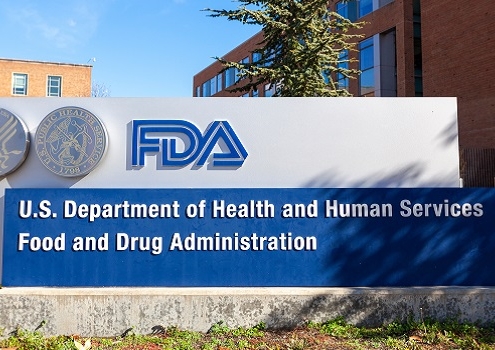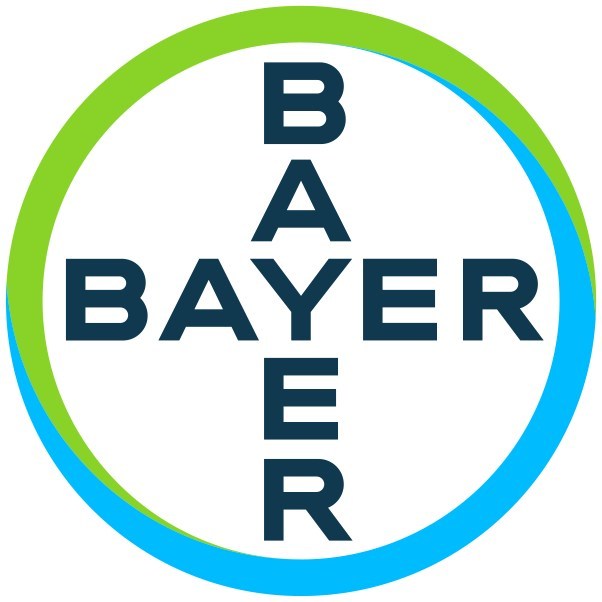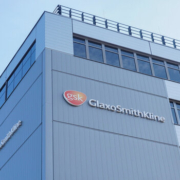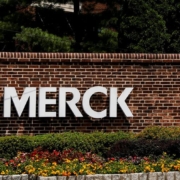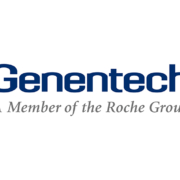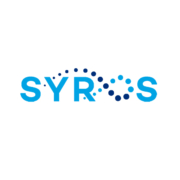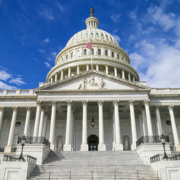FDA decisions 2023: Roche, Blueprint Medicines and Galera
FDA decisions 2023: Roche, Blueprint Medicines and Galera
Published: Aug 11, 2023
By Heather McKenzie
BioSpace
The FDA was on a roll in the first half of 2023, approving more than two dozen novel treatments. And if the first six months is any indication, the biopharma industry should expect several more novel therapies to be greenlit, including a few more first-in-class treatments. But it’s not always good news that companies have to deliver to their stakeholders; the year has already seen its fair share of Complete Response Letters.
BioSpace looks forward to keeping you up to date on all the FDA’s action as we launch our FDA Decision Tracker.
August
Aug 9:
Nearly three years after first winning accelerated FDA approval of Gavreto (pralsetinib) in metastatic non-small cell lung cancer (NSCLC) with RET fusions, Genentech (Roche) and Blueprint Medicines announced the drug’s conversion to full approval.
RET fusions are present in just 1-2% of NSCLC cases, according to Genentech. The original FDA nod was based on an overall response rate (ORR) of 57% and median duration of response (DoR) that had not yet been reached in 114 patients in the Phase I/II ARROW study. The conversion to traditional approval was granted based on an additional 123 patients and 25 months of further follow-up. Treatment-naïve patients saw a median DoR of 13.4 months with a 78% ORR, while patients previously treated with platinum-based chemotherapy had an ORR of 63% and DoR of 38.8 months.
Aug 9:
Shares of Galera Therapeutics plummeted more than 80% Wednesday after the FDA rejected the company’s application for avasopasem manganese (avasopasem). The drug was being proposed to treat severe oral mucositis (SOM)—or mouth sores—resulting from radiotherapy in patients with head and neck cancer.
In its Complete Response Letter, FDA said results from the Phase III ROMAN trial, in combination with the GT-201 trial, were “not sufficiently persuasive to establish substantial evidence of avasopasem’s effectiveness and safety” in reducing these mouth sores. Galera will need to provide results from an additional clinical trial in order to resubmit the application, the Malvern, Penn–based company said in a press release. Impacts for the company’s workforce were swift, as Galera announced it would reduce its numbers by approximately 70% in order to extend its cash runway.
Aug 4:
Mesoblast will have to provide more data before the FDA may approve its BLA for remestemcel-L for the treatment of pediatric steroid-refractory acute graft versus host disease (SR-aGVHD). In response to the FDA’s complete response letter (CRL), announced Friday by Mesoblast, the New York–based biopharma will “conduct a targeted, controlled study in the highest-risk adults with the greatest mortality.” Mesoblast noted that the adult study is in line with its overall commercial strategy, which involves a progression from pediatric to adult SR-aGVHD indications. This is the second rejection for remestemcel-L, after the FDA first turned down Mesoblast’s application in 2020, despite a 9-1 advisory committee vote in its favor.
Aug 3:
In 2019, the FDA approved the first vaccine for Ebola, a deadly viral hemorrhagic fever, for adults 18 years and older. Now, that vaccine—Ervebo, developed by Merck—is available to children 12 months and older. The FDA’s decision follows a recommendation on July 20 by the European Medicines Agency’s Committee for Medicinal Products for Human Use to expand Ervebo’s label to children one year and older. The vaccine is only FDA-approved to protect against the Zaire ebolavirus and not other species of Ebola or Marburgvirus and the duration of protection is unknown, according to Merck.
Aug 2:
Taiho Oncology picked up a label expansion for its cancer drug Lonsurf (tipiracil), alone or as part of a combination regimen with Roche’s Avastin (bevacizumab) in metastatic colorectal cancer (mCRC). The nod came nearly eight years after Lonsurf first won approval as a monotherapy for mCRC in Sept. 2015. The expansion pertains to patients who had previously been treated with an anti-VEGF biologic agent and fluoropyrimidine-, oxaliplatin- and irinotecan-based chemotherapy. Patients whose cancer has the wild-type RAS protein and who have previously received an anti-EGFR therapy are also eligible for the new combination.
The FDA’s decision was supported by the Phase III SUNLIGHT trial, where the Lonsurf–Avastin combination led to a median overall survival of 10.8 months versus 7.5 months on Lonsurf monotherapy, for a 39% reduction in risk of death.
July
July 31:
GSK’s Jemperli (dostarlimab-gxly) won FDA approval as a frontline treatment for primary advanced or recurrent endometrial cancer. The regulatory nod is the first new frontline treatment for patients whose cancer is mismatch repair deficient (dMMR) or microsatellite instability-high (MSI-H) in decades, according to GSK. Jemperli is also the first immuno-oncology treatment and PD-1 inhibitor to be authorized for frontline use in this patient population.
Jemperli, an anti-PD-1 antibody, was first approved in April 2021 for recurrent or advanced dMMR endometrial cancer. The FDA accepted the supplemental BLA to move the drug into the frontline setting on June 6 and set a target action date of Sept. 23, meaning Monday’s approval came nearly two months ahead of schedule.
July 29:
Citius Pharmaceuticals’ plans to bring a reformulated version of Eisai’s withdrawn cancer drug Ontak were put on hold on Saturday after the FDA rejected its BLA for Lymphir (denileukin diftitox). Citius acquired the drug from Dr. Reddy’s Laboratories in Sept. 2021.
An engineered IL-2-diphtheria toxin fusion protein being developed to treat relapsed or refractory cutaneous T-cell lymphoma (CTCL), Lymphir specifically binds to IL-2 receptors to precisely deliver its toxic payload, thereby preventing protein synthesis in malignant T cells. The drug also targets the immunosuppressive regulatory T cells, which allows the body to mount a stronger immune response against the cancer.
In its announcement of the Complete Response Letter, Citius said the FDA will require it to “incorporate enhanced product testing and additional controls” into the BLA. No clinical efficacy or safety issues were raised and Citius stated it will continue working toward FDA approval of Lymphir.
July 28:
The FDA approved RiVive, a 3 milligram (mg) naloxone hydrochloride nasal spray manufactured by Harm Reduction Therapeutics, as the second over-the-counter (OTC) naloxone rescue option for opioid overdose. The approval comes just four months after the regulator greenlit Narcan, a 4-mg naloxone hydrochloride nasal spray, as the first OTC naloxone product. Narcan is manufactured by Emergent BioSolutions. Naloxone rapidly reverses the effects of opioid overdose—a long-running epidemic that claimed the lives of more than 105,000 people in the U.S. in the year ending in February 2023, according to the FDA.
In a press release announcing RiVive’s approval, FDA Commissioner Robert Califf stated the regulator’s commitment to making naloxone accessible and encouraged other manufacturers of these products to discuss potential nonprescription development programs with the FDA.
July 26:
Octapharma secured approval for Balfaxar (prothrombin complex concentrate) for the reversal of the blood-thinner Warfarin in emergency surgery and invasive procedures. Warfarin increases the risk of bleeding—a serious complication during surgery. Balfaxar works to quickly increase blood levels of key clotting factors and antithrombotic proteins. A lyophilized powder, it is reconstituted in a device developed by Octapharma.
While Balfaxar met the primary endpoint of hemostatic efficacy in a Phase III study and was non-inferior to the comparator, Kcentra, fatal and non-fatal arterial and venous thromboembolic complications were observed in clinical trials and post-marketing studies, and healthcare providers are advised to monitor patients for signs of thromboembolic events.
The approval is the third for Balfaxar, which is already marketed in Canada and the EU as octaplex.
July 25:
People with an eyelid disease called demodex blepharitis now have a treatment option as the FDA approved Tarsus Pharmaceuticals’ Xdemvy. A prescription eyedrop, Xdemvy aims to eradicate the root cause of the disease—demodex mites that burrow in the eyelash follicles of sufferers. Xdemvy is the first therapy approved for the condition.
Approval for Xdemvy was granted based on two randomized, multicenter, double-masked, vehicle-controlled studies of 833 patients, in which 415 patients received the treatment. A significant improvement was seen in each study by day 43, Tarsus stated in its approval announcement, adding that the therapy was “generally safe and well-tolerated.”
Tarsus will have a significant market for Xdemvy as demodex blepharitis affects around 25 million people in the U.S. and accounts for more than two-thirds of all blepharitis cases, according to Tarsus.
July 24:
The FDA has approved the first treatment for adults and children two years and older with molluscum contagiosum, a viral skin infection that affects around 6 million people in the U.S. every year. A topical solution developed by Verrica Pharmaceuticals, YCANTH is a drug-device combination that contains a GMP-controlled formulation of cantharidin, a substance derived from the blister beetle Cantharis vesicatoria. It works by causing a blister to form on the wart or growth, eventually lifting it off the skin.
YCANTH’s approval is based on data from two randomized, double-blind, multicenter Phase III trials. In each trial, a clinically and statistically significant number of patients treated with YCANTH achieved complete clearance of all treatable molluscum lesions, meeting the primary endpoint. No serious adverse reactions were reported in either trial. The company expects to make YCANTH available to patients and caregivers by September, Ted White, Verrica’s president and CEO, said in a statement.
July 20:
Four years after it was rejected by the FDA due to safety concerns, Daiichi Sankyo’s Vanflyta (quizartinib) won approval to treat patients with acute myeloid leukemia that has a FLT3-ITD gene mutation. In 2019, an FDA advisory committee voted that the benefit conferred by quizartinib did not outweigh the safety risks. Thursday’s approval comes with a Boxed Warning for three heart disorders: QT prolongation, torsades de pointes and cardiac arrest, and will only be available through a restricted Risk Evaluation and Mitigation Strategy (REMS) program.
Daiichi Sankyo supported its NDA, accepted last Fall, with data from a Phase III trial that showed the quizartinib regimen—combined with standard induction and consolidation chemotherapy and continued as a single agent)—reduced the risk of death by 22.4% compared to patients on chemotherapy alone. After 39.2 months of follow-up, quizartinib more than doubled the overall survival advantage, the company stated in a press release.
July 20:
Emergent BioSolutions secured approval for Cyfendus, a vaccine intended for use after exposure to bacillus anthracis, a bacterium that causes anthrax. Cyfendus is required to be used in combination with “recommended” antibacterial drugs, according to Emergent’s announcement. The approval was based on a series of studies, including a pivotal Phase III trial assessing the vaccine’s consistency, immunogenicity and safety in healthy adults. Even before the approval, Emergent had been supplying Cyfendus to the U.S. Department of Health and Human Services under pre-Emergency Use Authorization for four years.
July 17:
Infants and children at severe risk of RSV have another treatment option after the FDA approved Sanofi and AstraZeneca’s Beyfortus (nirsevimab). A monoclonal antibody, Beyfortus is just the second RSV drug authorized in the U.S. for high-risk children, the other being Synagis (palivizumab), which was approved in 1998. The companies’ bid for approval was backed by three late-stage trials that demonstrated the antibody’s safety and efficacy. Beyfortus will be available in the U.S. ahead of the 2023/2024 RSV season for children entering their first RSV season and those at severe risk up to 24 months, Sanofi stated in a press release.
July 13:
The FDA approved Perrigo Company’s Opill (norgestrel)—a progestin-only daily oral contraceptive—as the first-ever birth control pill available over the counter in the U.S. Perrigo expects Opill to be available online and in-person at drug stores, convenience stores and grocery stores in the first quarter of 2024. In a prepared statement, Perrigo President and CEO Patrick Lockwood-Taylor said the approval “marks a truly momentous day for women’s health nationwide.”
July 6:
A short workweek in the U.S. ended with big news as the FDA granted traditional approval to the first anti-amyloid antibody—and the first disease-altering drug—for Alzheimer’s disease. The accelerated approval for Eisai and Biogen’s Leqembi (lecanemab) was converted to a full approval based on results from the confirmatory Clarity-AD trial, which the FDA said in its statement verified the drug’s benefit. With the approval, Medicare coverage for Leqembi is expected to begin right away, with the requirement of a patient registry intended to collect further information on the effectiveness of this drug class in Alzheimer’s.
July 3:
Amneal Pharmaceuticals received a Complete Response Letter for IPX203—a novel oral formulation of carbidopa/levodopa (CD/LD), a well-established combination for the management of Parkinson’s disease. In its rejection letter, the FDA said that while Amneal was able to adequately establish the safety of levodopa, it was not able to sufficiently do so for carbidopa. The regulator has requested additional pharmacokinetic data. The New Jersey–based company stated it plans to meet with the FDA to determine the best path forward for the treatment.
June
June 29:
Capping a busy week, the FDA approved BioMarin’s Roctavian (valoctocogene roxaparvovec-rvox) as the first gene therapy for adults with severe hemophilia A. Hemophilia is a rare genetic bleeding disorder caused by a mutation in the gene that encodes factor VIII (FVIII), which is necessary for blood to clot. A one-time gene therapy, Roctavian contains a healthy gene for factor VIII. Delivered through an adeno-associated virus (AAV) vector, the gene is expressed in the liver to increase blood levels of FVIII, thereby reducing the risk of uncontrolled bleeding.
June 28:
The FDA notched another milestone with the approval of the first cellular therapy for type 1 diabetes. Lantidra (donislecel) developed by Chicago-based CellTrans, is a cell therapy made from the pancreatic islet cells of deceased donors. It is intended for adult patients whose repeated hypoglycemic episodes leave them unable to hit average blood glucose levels. In a clinical trial of 30 patients, 21 were insulin-free for at least a year; 11 didn’t require insulin for between one and five years and 10 were insulin-free for more than five years. Five patients failed to achieve any days of insulin independence.
June 28:
Pfizer’s bet on OPKO Health’s human growth hormone analog paid off as the FDA approved the treatment—which will be marketed as Ngenla—to treat children whose production of growth hormones is impaired. Pfizer purchased exclusive global commercialization rights for the then-experimental treatment in December 2014 for $295 million upfront and a promise of up to $275 million in milestones. This was the partners’ second try for FDA approval after the regulator rejected Ngenla’s first bid in January 2022. Pfizer and OPKO did not state the reasons for the initial denial.
June 28:
The FDA declined to approve Eton Pharmaceuticals’dehydrated alcohol injection for the treatment of methanol poisoning, citing concerns related “primarily to Chemistry Manufacturing and Controls.” This is the second Complete Response Letter issued to Eton for this proposed treatment. In the first, issued in March 2021, the FDA indicated that travel restrictions due to the COVID-19 pandemic prevented a timely inspection of the company’s European contract manufacturing site.
June 27:
The FDA approved UCB’s Rystiggo (rozanolixizumab), a subcutaneously administered humanized IgG4 monoclonal antibody, to treat generalized myasthenia gravis, a rare muscle-wasting autoimmune disease. Rystiggo is the only treatment approved to treat patients who are anti-acetylcholine receptor- or anti-muscle-specific tyrosine kinase antibody-positive. The regulatory green light was based on a Phase III trial that showed Rystiggo led to significant improvements in symptoms related to breathing, talking, swallowing and rising from a chair.
June 23:
The FDA greenlit Pfizer’s Litfulo (ritlecitinib) for the treatment of patients as young as 12 years with severe alopecia areata, an autoimmune disease characterized by patchy or complete hair loss on the scalp, face or body. Litfulo inhibits Janus kinase 3 and the tyrosine kinase and is believed to work by blocking the signaling of cytokines and cytolytic activity of T cells, which are implicated in alopecia areata.
June 22:
In one of the year’s most-anticipated regulatory decisions, the FDA approved Sarepta’s Elevidys—formerly SRP-9001—for children 4 to 5 years with Duchenne muscular dystrophy. Elevidys is the first-ever gene therapy for DMD, a neuromuscular disease characterized by progressive muscle weakness and atrophy that strikes primarily young boys. The gene therapy was approved via the FDA’s accelerated approval pathway based on data that established it increased the expression of the Elevidys micro-dystrophin protein.
June 21:
Eli Lilly and Boehringer Ingleheim’s Jardiance (empagliflozin) and Synjardy (empagliflozin and metformin hydrochloride) picked up another indication, becoming the first and only SGLT2 inhibitors approved for children 10 years and older with type 2 diabetes. Previously, there had only been one oral drug for this indication: metformin, which was approved in 2000.
June 20:
Argenx will bring to market the first subcutaneous injectable for generalized myasthenia gravis (gMG), a rare muscle-wasting autoimmune disease. Vyvgart (efgartigimod) was first approved in 2021 as a one-hour intravenous infusion. Vyvgart is an antibody fragment that binds to the neonatal Fc receptor to prevent recycling of immunoglobulin G back into the blood. This includes a reduction in abnormal AChR antibodies, which are present in approximately 85% of gMG patients. AChR antibodies block the acetylcholine receptors from being able to receive signals from the nerve to stimulate a muscular response. Their normalization should ostensibly improve muscular function.
Source: BioSpace

